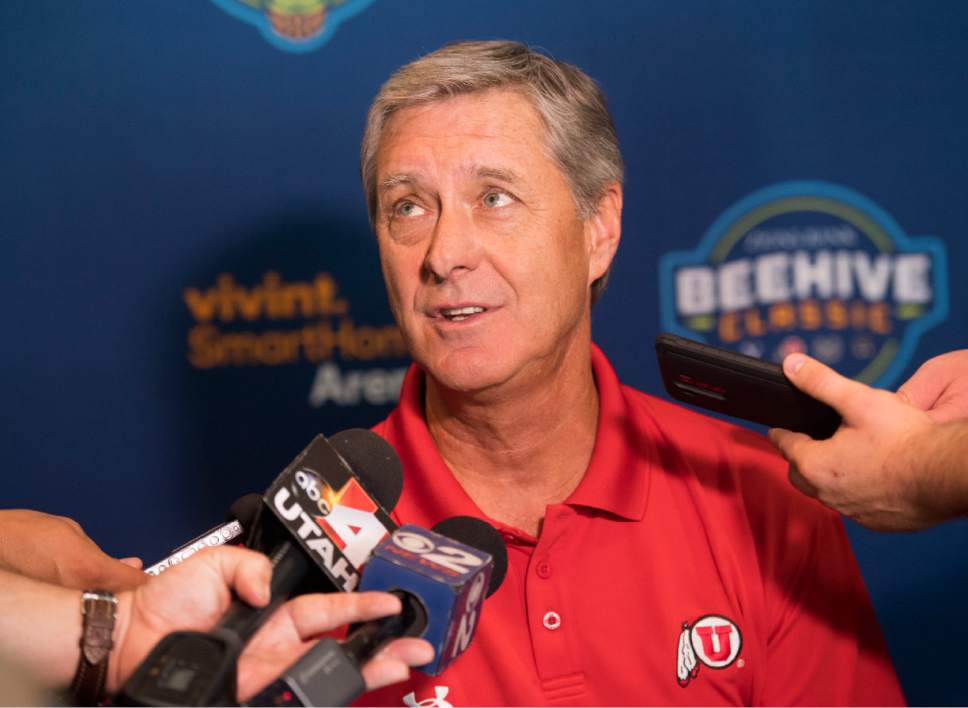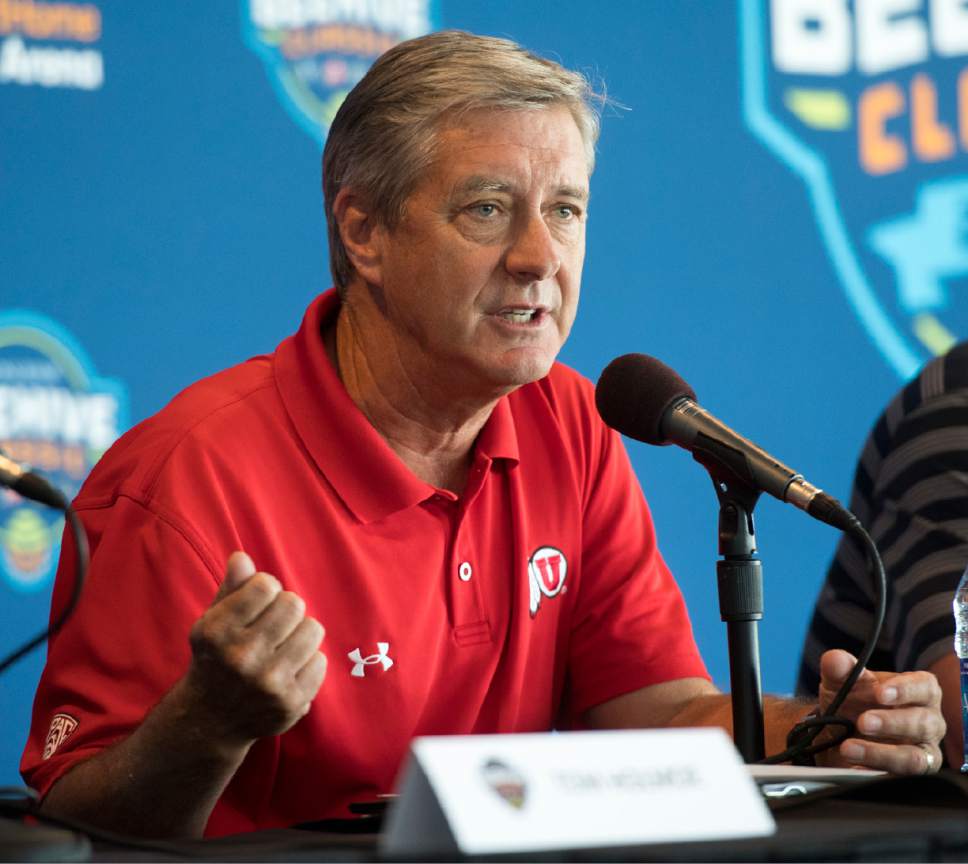This is an archived article that was published on sltrib.com in 2017, and information in the article may be outdated. It is provided only for personal research purposes and may not be reprinted.
The rumors of Utah athletics' war chest have been greatly exaggerated — well, not greatly.
Flipping through the NCAA revenue and expense report of Utah's last fiscal year, 2015-16, with department CFO Steve Smith, there's a lot of numbers, and not all of them are straightforward. Namely, Utah reported $79.4 million in total revenue to the NCAA last year — that includes subsidies, benefits and other non-cash assets.
However, last year was Utah's biggest budget ever: Smith estimates the athletics department had north of $72 million in true cash revenue last year, higher than the Utes projected.
"There's so many different ways of accounting, but we've had a good year," athletic director Chris Hill said. "I think our folks are pretty good with our money, so I have confidence with our financial plan in place."
The highlights of Utah's last budget were in robust football and men's basketball ticket sales. Utah recorded seven home football games in the 2015 season, during which the team had 10 wins. Demand was high for Utah's hyped season-opener against Michigan, and another big game against Cal (hosting College GameDay) was a significant draw. Utah documented $12.6 million in football tickets sales, as well as $2.9 million from men's basketball ticket sales; the Runnin' Utes averaged just shy of 13,000 fans per game last season, second-best in the Pac-12.
The other boost came from Pac-12 revenue, which was bumped up to $8.3 million, and — again, depending on interpretation of accounting — was arguably more. Part of Utah's $19.9 million in media rights revenue was a bump in Pac-12 Network distribution, which is an odious topic for many fans, though the league did see increases from deals with Sling and Twitter, among others.
"There were some good things that happened," Smith said. "We're still a little short in that area [conference revenue] compared to some other conferences, but they're getting creative, and that's starting to help."
The athletic department also reported $78.1 million in expenses for the last fiscal year, a figure that rose with coaching salaries (raises/extensions for Kyle Whittingham and Larry Krystkowiak went on the books that year) and more staffing jobs the department has added, including both student support — think strength coaches, nutritionists, sports psychology — plus marketing and social media roles.
But there are some other hidden figures, some which will appear this year in other forms as Utah complies to a recommendation to the legislative audit it received last year. The Utes will report other forms of indirect support, including how it is subsidized by Rice-Eccles Stadium and the university. Smith also noted Utah doesn't have to include donations in reserve in the NCAA report until the money is allocated: He estimates the Utes have approximately $16.8 million saved.
While fans would quickly line up a wish list of things that money might pay for — expansion to Rice-Eccles probably tops the fan list — Utah is waiting for the potential of a storm to come after years of growth since joining the Pac-12.
Smith and Hill met recently to discuss if the savings could be used to pay off Utah's outstanding debt on a quicker timeline: Utah reported paying $4.6 million on both bonds to recent construction projects, including basketball and football facilities, and a payment back to the university for its loan when the Utes first joined the conference; about $2.5 million is outstanding, down from $7.5 million owed at its peak.
While Utah would like to get ahead of its debt by paying down part of the principal this year, Smith said, they've so far decided to simply save. The Utes have had good luck with ticket sales, donations and stable coaching staffs recently, but a hit in any area could cost millions. One of the findings of the audit was that Utah was in debt (minus-$4.7 million), but in better shape than peer institutions such as Washington State ($50 million) or Oregon State ($30 million). Keeping reserves, Smith said, could help keep Utah on the right side of the column in the Pac-12.
"You can't just assume that everything is going to be rosy, that very pledge received is going to be honored and every ticket will be sold," Smith said. "We need to make sure we're prepared if the storm hits. You can get out of debt quickly by using your reserves, but if that storm hits, you're right back where you started."
Twitter: @kylegoon







